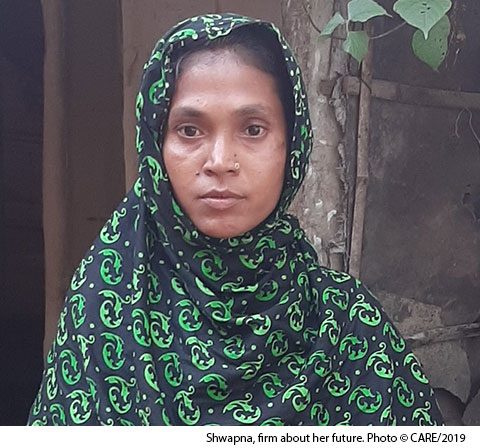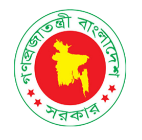After almost a year of not traveling in the villages to meet with the participants, I finally got the chance to tie up a field visit after the program conducted a team meeting in one of the districts where we work.
And it felt great to see them again, especially that SHOUHARDO III is going through changes in its implementation, with the group reformation as one of the main activities. The participants never cease to amaze with their energy, and despite the language barrier you can see it in their eyes how much passion they have to share their stories.

I sat with Shwapna, 26 years old from Ujan village in Tahirpur sub-district, Sunamganj. She has three children, the youngest one she just dropped in school on her way to meet with SHOUHARDO III staff. Too tiny for her height, but always smiling, and were firm with the way she answered my questions. The aim was to get a sense from the community members like her on how they were getting by with the changes that the program started implementing since April this year
A year after the Midterm Evaluation that steered the direction that the program is taking, the former groups that included Empowerment Knowledge and Transformative Action (EKATA), Farmers’ Field Business School (FFBS), Mother Leaders and Youth Groups – were reformed into five main groups to include: (1) male adult groups (with members 18 years old and above), (2) female adult groups (with members 18 years old and above), (3) adolescent girls and (4) adolescent boys who are neither married nor in school, and (5) young mothers and new brides (aged up to 25). This was done to ensure that the needs of all program participants are met, particularly in improving their lives and livelihoods, regardless of age.
To get these new groups and way of working underway, there were three meetings to facilitate the reformation of the groups. Shwapna attended all the meetings set by the program thus far. Before ‘transitioning’ as she is now a member of an adult female group, she acknowledged the key changes in her life since being engaged with the program. Confidently, she referred to knowing how to better take care of her children, how to choose food that would meet her family’s nutritional needs,
and why providing colostrum is important. She earns her own income too from rearing goats and chicken, and raising vegetables mostly for her family’s consumption. None of these independent initiatives existed before, as she relied only on her husband who is a contractual farmer earning BDT3,500 (USD $40) per month.
“Our lives changed even with the previous program approaches, how much more now when it is more convenient for us to meet as a group due to our proximity with one another”, was Shwapna’s straight answer when asked about how she views the changes in the program shared with her and other participants during the first meeting. “The good effects of this transition would apply in the savings groups that we established too, making it easier for us to decide on matters affecting us and immediately provide support to those who have concerns”, she added.
Shwapna and the other females in the group were all supportive of the process and active more than ever in attending the sessions in their village. Collectively, they want to continue earning their own money to better support their children in providing them education. “We discovered the things in life that improved the way we live, I am sure it can only get better as we move forward in the program”, Shwapna concluded.


